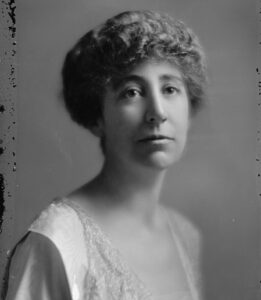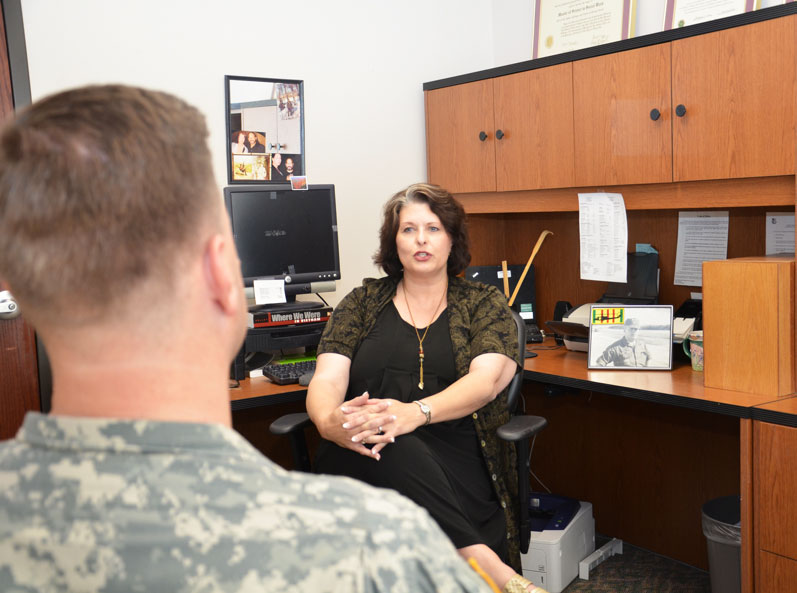LCSW vs. MSW (Master of Social Work)
Posted on June 14, 2021 by
A Master of Social Work (MSW) degree is the standard requirement for the Licensed Clinical Social Worker (LCSW) credential. However, earning an MSW doesn’t means you have to become an LCSW. MSW graduates can also pursue non-clinical social work jobs or other careers in human services. The LCSW allows social workers to offer psychotherapy services and requires additional testing and experience that isn’t typically required in those other roles.
There aren’t many fields that are as swamped with abbreviations as human services. Social workers have a lot to sort through all by themselves. So we’re here to help you figure out how an LCSW compares to an MSW in the alphabet-soup of social work education and credentials.
The Master of Social Work (MSW) degree is an in-depth, two-year course of study into all the elements that prepare students for advanced practice in a wide variety of social services positions. For any social worker, the MSW is an advanced master-class in all the elements that make the profession what it is today.
The LCSW (Licensed Clinical Social Worker), on the other hand, is a state-issued license that permits social workers to deliver clinical psychotherapy and other counseling treatments. The LCSW requirements vary from state to state, but always include earning an MSW first.
Actually, there is no versus here. Every LCSW has an MSW or an even higher degree. That’s a requirement to earn the license in the first place.
On the other hand, just earning an MSW degree doesn’t automatically qualify you for an LCSW. An MSW in social work gives you an education in the subject. It doesn’t give you the experience or the expertise to immediately qualify for a state license.
In fact, there are many social workers who don’t require a license, or even a master’s degree. But an MSW social worker can perform more critical, more advanced work in the field.
What is a MSW Degree?
The Costs of MSW Degree Programs
When To Consider an MSW in Social Work
What is an LCSW?
What Can You Do With an MSW Degree Without an LCSW?
What About Salary Differences For LCSW vs MSW?
Organizations That Help Both LCSWs and MSWs Succeed
What is a MSW Degree?
A master’s in social work is a two-year graduate degree program that provides an intensive education in subjects such as:
- Human behavior
- Research
- Clinical treatment and practices
- Social policy issues
- Sociology and psychology
- Advocacy and community organizing
For an MSW to count toward LCSW licensure, it has to come from a school that has earned a specialty accreditation from the Council on Social Work Education.
Only 261 MSW degree programs in the United States meet the strict standards of the CSWE Commission on Accreditation.
An MSW also puts you on a path to earning the terminal degrees in the social work field, the Doctor of Philosophy in Social Work (Ph.D.) or Doctor of Social Work (DSW) degrees.
Many concentrations are available in social work master’s programs, although not every school offers every possible specialty. Some of the most common concentration areas include:
- Child and family social work
- Gerontological social work
- School social work
- Social justice and advocacy
- Community organizing
All these options come with the same basic preparation in core concepts, but offer more in-depth preparation in their focus area that is designed to prepare you for work that is concentrated around that subject.
Getting into MSW programs also means first earning a bachelor’s degree. The Bachelor of Social Work (BSW) is the most natural entry point, but it’s not a requirement. Almost any kind of bachelor’s program that gives you a baseline in sociological and psychological studies can get you into an MSW. It’s totally common to find MSW students with bachelor’s in psychology, human services, sociology, or even nursing or counseling.
The Process of Earning an MSW Degree
Two-year master’s degrees in social work are typically split into two parts. The first year is called the foundation year. It consists of general studies into core social work concepts and theory involving:
- Behavioral psychology
- Basic research methods and quantitative analysis
- Both clinical and macro social work practices and processes
- Social services structure and policy
These courses lay all the groundwork for more in-depth investigations and more specialization that come in your concentration year. Although that’s what the second year of MSW degree programs is commonly called, you don’t actually have to pick a concentration in most of these programs. A generalist degree that offers a well-rounded education in MSW social work is always an option.
One thing you will get regardless of whether or not you specialize is a strong course of study that allows you to master clinical social work. That’s part of the core curriculum laid out by CSWE, so it’s required study in any CSWE-accredited MSW.
The Role of The Council on Social Work Education in MSW Degree Programs
CSWE, the Council on Social Work Education, plays a big part in the MSW in social work as it exists today.
Founded in 1952, CSWE includes members from academia, social services agencies, and independent practitioners. That gives the group a broad perspective on the real-world demands on social workers today, and the input it needs to inform a useful social work educational curriculum at the bachelor and master levels.
Although formal social work education has been around since at least the late 1800s, accreditation didn’t show up until the 1930s via the American Association of Schools of Social Work. CSWE traces its roots back to that and competing organizations.
The organization has always focused on establishing professional standards for practicing social workers. Today, their Commission on Accreditation sets out the Educational Policy and Accreditation Standards that nail down the 9 core competencies in social work that every established MSW degree program in the country teaches.
Social work agencies and clients know that MSW social workers have all the right theoretical preparation and practical skills to get the job done in a complicated and vital field.
The MSW is also a part of state-level licensing for many kinds of social work positions. It is accepted for those credentials exactly because of the set of skills that it comes with.
A big part of those skills come from requirements that include hands-on field work through practicum or internship placements. These put you out in the real world, working with and for practicing social workers in a variety of settings. You get direct experience with people in need and learn the ropes of getting them the assistance they require.
Master’s programs also come with extensive research requirements. You are expected to bring a strong sense of enquiry to the problems of social injustice and inequality you face. You will put that together with sociological investigation into causes and solutions to problems, both at the individual and population scale.
The Costs of MSW Degree Programs
Those two years of expert instruction and knowledge come with a substantial price tag.
The National Center for Education Statistics (NCES) puts the cost in 2020 of a master’s degree program at nearly $39,000.
Most people on their way to earning a master’s in clinical social work don’t just have $40,000 laying around. That’s particularly true after coughing up tens of thousands of dollars for the bachelor’s degree you had to earn first.
For most MSW students, that means turning to loans and scholarships to make up the difference. The Council on Social Work Education conducted a survey in 2013 that showed that more than 80 percent of graduates in the field of social work have outstanding loan debt of between $31,880 and $42,149. That’s nearly as much as many social workers can expect to be paid in their first year of professional employment.
That means it’s a good idea to look for as many scholarship to cover your costs as possible. Federal Pell grants are an option that is open to all students on the basis of financial need. But there are also scholarships that are specific to social work or human services fields that you might want to check out. Some examples include:
- The National Association of Black Social Workers offers scholarships ranging from $1,000 to $1,500 to Black students pursuing social work careers who have a history of community service and who meet grade point average requirements.
- The Council on Social Work Education offers scholarships and fellowships in a variety of areas, awarding grants from $500 to as much as $10,000, for minority students pursuing master’s level work in mental health or substance abuse services, or to any social work student with a demonstrated commitment to equity and social justice.
- The Melanie Foundation offers a $2,500 scholarship available to graduate students who plan to enter a mental health field, including clinical social workers.
Any professional social work association, either local, state, or national, is a good place to start looking for scholarship funds. So are nonprofit organizations that are heavily invested in social services work.
Loan Forgiveness Programs Can Make an MSW in Social Work More Affordable
Another way to blunt the costs of the MSW degree is to take advantage of several loan forgiveness programs that are aimed at assisting graduates who enter the field of public service or healthcare. Social work straddles that line in a way that makes many MSW social workers eligible for both state and federal programs.
For example, the federal Public Service Loan Forgiveness program can be used to write-off the outstanding balance of any federal student loans you have if you:
- Are employed by a federal, state, local, or tribal government, or a non-profit organization on a full-time basis
- Are currently in good standing on your loan payments
- Have made at least 120 qualifying payments
There is also the National Health Service Corps loan repayment program. Run by the Health Resources and Services Administration (HRSA), this program is designed to encourage students to take on jobs in high-needs communities and fields where there are worker shortages. For social workers, that means applying under the Substance Use Disorder Workforce eligibility area or the Rural Community area of the program. As long as you are working in a qualified facility or job under the terms of those programs, HRSA will pay off your outstanding loan balances.
When To Consider an MSW in Social Work
 Although the MSW is generally considered an entry-level credential in most types of social work, particularly clinical social work, it’s also an expensive course of study. For a social worker, MSW degrees represent some of the highest levels of qualification. But they’re not a mandatory requirement. Depending on your career plans in social work, you may not actually need a full MSW. It’s entirely possible to get into many social work positions with only a bachelor’s degree, including many administrative and health care social services positions.
Although the MSW is generally considered an entry-level credential in most types of social work, particularly clinical social work, it’s also an expensive course of study. For a social worker, MSW degrees represent some of the highest levels of qualification. But they’re not a mandatory requirement. Depending on your career plans in social work, you may not actually need a full MSW. It’s entirely possible to get into many social work positions with only a bachelor’s degree, including many administrative and health care social services positions.
So when do you need an MSW degree? The most definite point is whether or not you want to practice clinically.
What Is Clinical Practice in Social Work?
Master’s clinical social work practice is the aspect of social work practice that involves assessing, diagnosing, and treating mental illness and other emotional and behavioral issues. It’s an applied therapy, similar to what is practice by licensed counselors and psychologists.
Clinical practice is distinguished from other social work through the tools it can bring to bear on common problems social workers face. Those include:
- Cognitive Behavioral Therapy
- Supportive Psychotherapy
- Psychosocial Assessment
- Biopsychosocial Therapy
Clinical skills require an extra level of training that includes hands-on, supervised therapy work with clients. It also takes an extra degree of familiarity with human development, abnormal psychology, and other types of traditionally psychological training.
In every state, you will need an MSW to work at the clinical level in social work.
The kind of skills that come with a MSW are in broad demand across many industries. They include:
- Communications
- Cultural competency
- Social justice and equality perspectives
- Community organizing
- Advocacy
- Sociological research and interpretation
That makes MSW grads well-suited for jobs in community health services, economic equality and advocacy, or social and healthcare policy analysis. Some MSWs go into politics, using their talents for community outreach and their passion for social justice to go right for the levers of power in society.
 Jeanette Rankin was the first woman elected to Congress in the United States… and an accomplished social worker.
Jeanette Rankin was the first woman elected to Congress in the United States… and an accomplished social worker.
An MSW degree doesn’t magically qualify you to work in politics, but it sure can help. Senators Kyrsten Sinema and Debbie Stabenow were both master’s-qualified social workers prior to being elected to office. Sinema even taught in the field at the ASU School of Social Work.
When you think about it, political organizing leans on a lot of the same skills you will learn in an MSW program. Community organizing, activism, communications, and a strong sense of social justice are all great assets for someone with political ambitions.
It’s also got a long history behind it. Back before there even was such thing as an MSW degree, Montana’s Jeanette Rankin became the first woman ever elected to Congress in 1916… after a career fighting for social justice. She continued that fight in the halls of power up to the 1940. Her leadership resulted in legislation for better working conditions for miners and federal employees, and championed social welfare and universal suffrage.
What is an LCSW?
The Licensed Clinical Social Worker credential is one common type of social worker license that is issued by individual states. Although most states use the same title, you can find a similar position called by several different names depending on where you practice, including:
- LGSW – Licensed Graduate Social Worker
- LICSW – Licensed Independent Clinical Social Worker
- LMSW – Licensed Master Social Worker
- LISW – Licensed Independent Social Worker
- LSCSW – Licensed Specialist Clinical Social Worker
You’ll also find some states where LCSW stands for Licensed Certified Social Worker, which is not necessarily qualified to provide clinical services. On the other hand, it usually also requires an MSW degree.
There are other direct practice social workers who work directly with clients, but don’t necessarily offer therapeutic services. This can include case managers and healthcare social workers. There are also many positions that are macro social work positions, working behind the scenes to offer support services that don’t necessarily involve direct client contact. Depending on the state and the position, these may or may not require a license, or a master’s degree, but the LCSW always will.
LCSWs are authorized by law to provide both general and clinical social work services. Clinical services can include individual and group counseling and therapy, offering services similar to those provided by professional counselors or psychologists. That means psychotherapy services for behavioral and mental health issues including:
- Depression
- Addiction
- Family and couples counseling
- Juvenile and school counseling

LCSWs have a wide array of specialties they can practice, including working with active-duty military personnel or veterans – (U.S. Army photo by Patricia Deal, CRDAMC Public Affairs)
So you can see why a master’s degree is considered a minimum educational requirement to get into the job.
But LCSW requirements don’t end with a degree.
Rigorous Testing and Client Contact Hours Are Required to Earn an LCSW
After earning an MSW degree, anyone pursuing an LCSW also has to accumulate 3,000 hours or more of post-graduate field work in social services. Although the exact number of hours varies from state to state, that’s at least two years worth of supervised clinical work to be done before you can even think about applying for that license. Some states even require an intermediate license to get while you are building up experience for the big one.
Become a Licensed Clinical Social Worker always involves passing the formidable ASWB LCSW exam.
The ASWB Clinical exam, which is considered standard for LCSW licensure, consists of 170 multiple choice questions and costs $270.
Most states require another, state-specific examination that is designed to test your knowledge of state laws and ethical standards. You will usually also have to pass a criminal background check, and you may be required to offer up references or meet other minor qualifications that states think up.
Those are all reasons an MSW and LCSW aren’t considered equivalent. But there are still many positions in social work that you can achieve without needing an LCSW license.
What Can You Do With an MSW Degree Without an LCSW?

Protestors at JFK International Airport, organized in part by social workers, object to an executive order banning Muslims from traveling to the United States – Rhododendrites, CC BY-SA 4.0 <https://creativecommons.org/licenses/by-sa/4.0>, via Wikimedia Commons
Just because you go out and earn an MSW in social work doesn’t mean you have to become a licensed clinical social worker. There are plenty of jobs that reward the expertise of an MSW degree that don’t necessarily need licensure, or lead to clinical practice. Just a few of the many options include:
- Political Lobbyist – One of the things that sets social work apart from other human services is the focus on the larger systems of governance and support that shape society. Social workers aren’t shy about taking the reins and going right to the seat of power to try to change those things for good. Confronting and convincing politicians and major social services agencies to use their power to expand social safety nets and reduce inequality is definitely a social worker role. A lobbyist for non-profit social service agencies or interest groups brings more horsepower to the job with an MSW under their belt.
- Grassroots Organizer – Community organization is a powerful tool in social work. From putting together suffragette marches to support women’s right to vote in the 1910s to organizing airport sit-ins to protest Muslim travel bans in the 2010s, grassroots organizers have made powerful statements about social justice and changed the course of history. You don’t need a license to get people organized, but having an MSW degree is a big help.
- Strategist – Putting together plans of action to accomplish major goals is often required when you are on the side of the angels but not necessarily the side of the billionaires. Holding an MSW gives you the kind of background and analytical approach to social justice movements to help you plot out a winning campaign when history is on your side but funding is not.
- Social Services Entrepreneur – Although social work is a very old profession, it isn’t stuck in the 1800s. New technology and new ideas are as effective in building social justice as they are in building social networks. Social services entrepreneurs develop new ideas and new technologies to serve the ideals of human services work. From building out microfinance operations in developing nations to putting natural, sustainable products on store shelves in developed countries, social entrepreneurs enjoy the freedom to pursue their own best ideas to make a difference.
Some of the Biggest Impacts Come From Simple Solutions
 Argentina’s traditional Alpargata shoes are pretty basic: rope-soled, canvas-topped, low-cut slip-ons that are seen on feet all over South America. But Blake Mycoskie noticed on a trip to Argentina in 2006 that there were still an awful lot of kids running around barefoot.
Argentina’s traditional Alpargata shoes are pretty basic: rope-soled, canvas-topped, low-cut slip-ons that are seen on feet all over South America. But Blake Mycoskie noticed on a trip to Argentina in 2006 that there were still an awful lot of kids running around barefoot.
He ran into a volunteer there whose organization was struggling to get donations to buy shoes for those children. She showed him the infections, sores, and social stigma that went along with going without shoes. And Mycoskie returned to the United States with a new idea. He would build a company that would market the Alpargata to Americans with an innovative twist: for every pair of shoes that was purchased, the company would donate a pair to a child.
He was going to call it “Tomorrow’s Shoes” but somehow, TOMS just seemed to work better.
By 2011, the company had donated its one millionth pair of shoes to charity. By 2018, it was donating to more than 70 countries, having provided 60 million pairs, and branched out into clean water and other charities. It’s the kind of reach and success that social entrepreneurship can achieve.
An MSW degree can be a wise choice for many careers outside the mainstream of social work practice, too. Those same skillsets are prized by many private corporations. MSWs can put their skills to good use in jobs such as:
- Community Outreach – Any company that has a need to work in and with communities needs spokespeople who are capable of connecting with those communities. MSW graduates are tailor-made for these jobs, with the empathy and communications skills to go out and talk to individuals and leaders to both take their temperature and relay company plans and intentions.
- Marketing – In a similar way, anyone with an MSW has a lot of the research and analysis skills to handle almost any kind of marketing position with style. Understanding the audience and perfecting a pitch is something every corporation needs.
- Human Resources – Sometimes, those audiences are within the company itself. Human resources professionals are coming at it from a different angle, but their role relies on empathy, communication skills, and the kind of people-handling techniques that are built right in to the average MSW program.
- Program Development/Management – When you think about it, a lot of these skills are just what are needed to work in management roles, too. Handling staff, figuring out how to structure programs and departments for maximum performance, and balancing the needs of individuals against the needs of the job can make MSW grads great program managers.
- Case Management – Any kind of insurance business, managed care providers in healthcare, jobs programs, or criminal justice rehabilitation all need skilled employees who can help individuals get through those systems. It takes a strong understanding of regulatory and bureaucratic environments along with the ability to evaluate individuals and advocate for them. That’s a set of skills that are tailor-made for MSW holders.
These kinds of positions can be full-time jobs with big non-profits or major companies. They may also be temporary consulting positions, where you work on a specific project for a period of time and then move on to another engagement.
In general, social workers or advocates that aren’t working one-on-one with patients are less likely to need a license to pursue their passions. You can get a lot of good done as an MSW social worker with an LCSW or other license.
Where Does The LMSW Fit Into Masters Clinical Social Work Licensing?
So you know now that you need an MSW do get an LCSW. But you may be confused when you run across some state that have a licensed that is called the LMSW—Licensed Master Social Worker.
Not every state offers an LMSW, and those that do don’t all define it the same way. In some cases it’s an alternative license that allows MSW social workers to practice macro or direct social work; in others, it’s a sort of pre-license to the LCSW that allows you to provide clinical services under supervision until you accumulate enough to earn the LCSW.
The LMSW still requires passing a test, but it may not be the ASWB Clinical exam. Instead, the ASWB Master’s or Advanced Generalist tests may be accepted.
What About Salary Differences For LCSW vs MSW?
It’s impossible to break down salary differences between LCSWs and MSWs because every LCSW holds an MSW degree.
There is good news for everyone in those categories, though.
A survey conducted by the National Association of Social Workers found that all master’s-qualified social workers earned an average of over $13,000 more than those who only earned a bachelor’s degree.
You can also make some educated guesses about the salary increase that earning an LCSW can give you over and above what your MSW will bring in.
The Bureau of Labor Statistics puts the median average salary for 2020 for all social workers at $51,760 per year, or $24.88 per hour. But the Occupational Employment and Wage Statistics data that goes into that figure offers several sub-categories. Clinical social workers, with an LCSW or equivalent, go into the category for “all other social workers.”
- Social Workers, all other – $64,940
- Child, Family, and School Social Workers – $52,370
- Mental Health and Substance Abuse Social Workers – $54,540
- Healthcare Social Workers – $60,470
Of course, not every social worker in the other categories will hold an MSW—some may only have bachelor’s degrees, dragging the averages down. Still, the extra time and preparation required for an LCSW definitely drives up wages over and above what the typical MSW will earn.
No matter what, you have a strong job market to look forward to. BLS also estimates that job growth for social workers overall will grow by 13 percent between 2019 and 2029, much faster than the average rate.
Organizations That Help Both LCSWs and MSWs Succeed
Since this entire page is about LCSWs vs MSWs you might end up with the impression that there is some tension or competition between the two. Nothing could be further from the truth! Social workers are all social workers. Everyone is on the same team and working toward the same goals.
So whether or not you are pursuing both an MSW and an LCSW or plan to earn an MSW and go in a different direction, you will find yourself supported by the same community either way.
To get plugged in to that community, it makes sense to get familiar with the major organizations that support and encourage social workers in America and globally.
- National Association of Social Workers – NASW is the largest organization of social workers in the world. It carries a lot of weight in establishing professional standards and ethics, setting social policies, and working to grow the numbers and expertise of social workers across the U.S.
- National Association of Black Social Workers – According to HRSA, the ranks of social workers in the U.S. have roughly twice the representation of Blacks as the overall population, more than 21 percent. That makes NABSW a big force for representing a big segment of the social work workforce as well as an important advocacy group for multiculturalism and cultural competency in social services.
- School Social Work Association of America – School social workers deal with the most vulnerable population in the country. They face unique challenges, require special skills, and need more support than just about any other group of social workers. Th SSWAA is there to help offer that support and to advocate for more compassionate, comprehensive approaches to social services for youth.
- North American Association of Christians in Social Work – Social work has its roots in Christian charities and the compassion that is preached in the gospels. Although the profession has become less religious and more non-denominational since, there are still major and important charities that are rooted in the Christian tradition. NACSW works to uphold those traditions and advocate for social workers of faith.
- Clinical Social Work Association – CSWA focuses on supporting social workers in the clinical and counseling specializations, such as LCSWs. They offer practical information on the latest counseling techniques and methods as well as advocating for clinical social work interests at the state and federal levels.
- International Federation of Social Workers – Social work doesn’t stop at borders. In fact, sometimes it’s needed the most where countries meet. The IFSW works to connect social workers of every nation and coordinate international efforts to deal with some of the major challenges of social justice in a fractured world. IFSW members deal with matters such as refugees and issues of climate justice, obstacles too big for any one country to take on alone.
A job in social work with either an LCSW or just an MSW can be enormously fulfilling and make a huge difference in your community. It’s up to you to decide whether to progress along the path to masters clinical social work or to pursue a career in direct or macro services. Either way, the MSW training you have earned will not go to waste.
May 2020 Bureau of Labor Statistics salary and job growth figures for Social Workers represents national data, not school-specific information. Conditions in your area may vary.
Tuition data provided by the National Center for Education Statistics, services of the U.S. Department of Education, using data collected for the 2019 school year. NCES loan and scholarship data comes from an April 2017 report published by the Department of Education.
Data Accessed June 2021.






